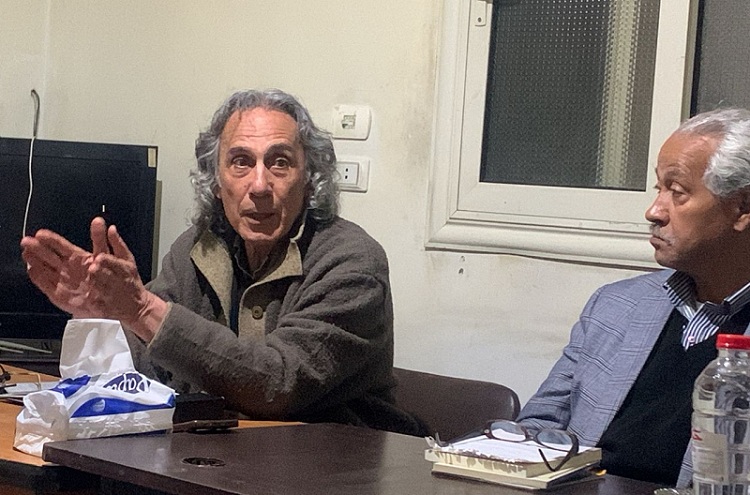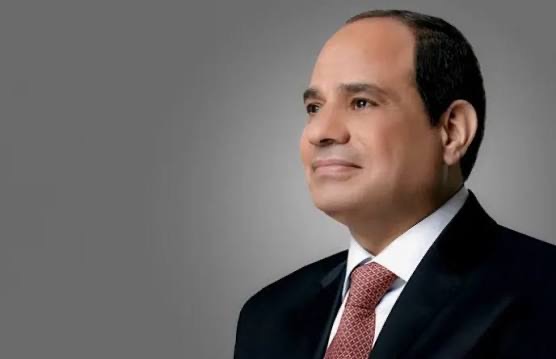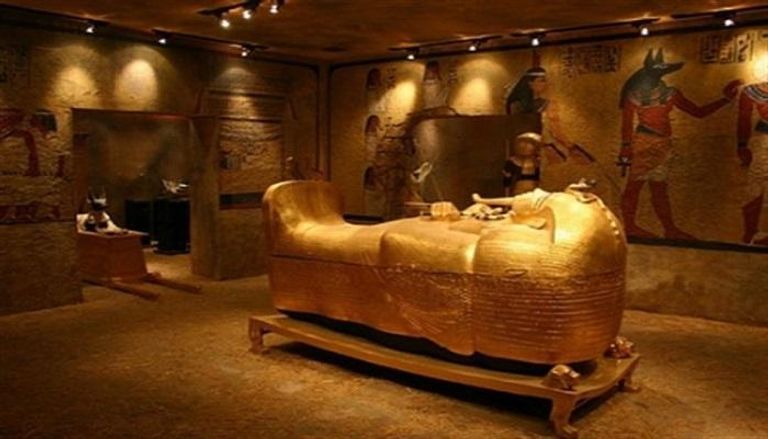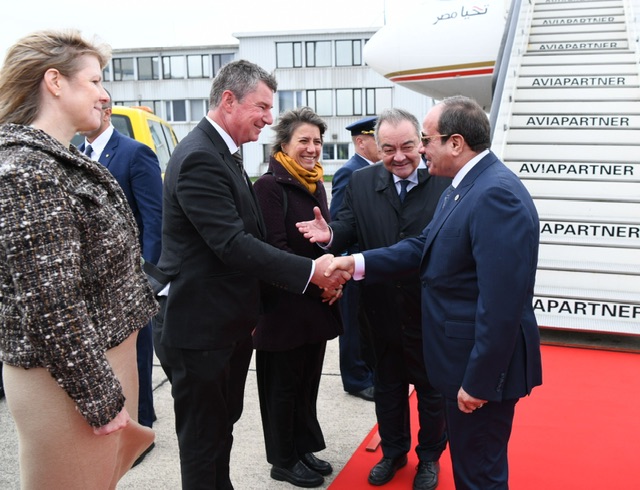Under the title *"We and the West... Observations Over Forty Years"*, the *Al-Mashhad* newspaper salon hosted the Iraqi-Danish writer and scholar Dr. Salim Al-Abdali in a cultural seminar that explored the relationship between the East and the West from a personal perspective. The event featured many prominent figures, including journalist Dr. Ashraf Radi, advisor Abdul Ghani Ajaj (former deputy head of the Information Authority), poet Dr. Faris Khader, writer Dr. Abdulkarim Al-Hajrawi, and writer Ibrahim Khaled. The discussion was moderated by writer Mohammed Al-Hammamsi.
During the seminar, Dr. Al-Abdali shared his testimony as an eyewitness to four decades spent in the West, reflecting on the transformations in the relationship between the Eastern and Western worlds and their cultural, political, and social impacts.
This event aimed to shed light on a profound vision rooted in extensive experience, opening the door to discussions about the civilizational interaction between "us" and "the other." However, as Al-Abdali noted, these are ultimately personal impressions and observations—a perspective that cannot be taken as an absolute truth or an unforgivable error.
Al-Hammamsi opened the seminar by posing a question about the dominance of Western civilization, which often presents the history of European thought as synonymous with the history of human thought, disregarding earlier or parallel civilizations in the Near East, the Middle East, and even ancient civilizations such as the Pharaonic or Islamic ones.
On the other hand, Al-Hammamsi discussed the current Arab reality, which contrasts sharply with Western debates. While Western discussions often revolve around the decline or end of Western civilization, Easterner's cling to the remnants of that culture without critical reflection.
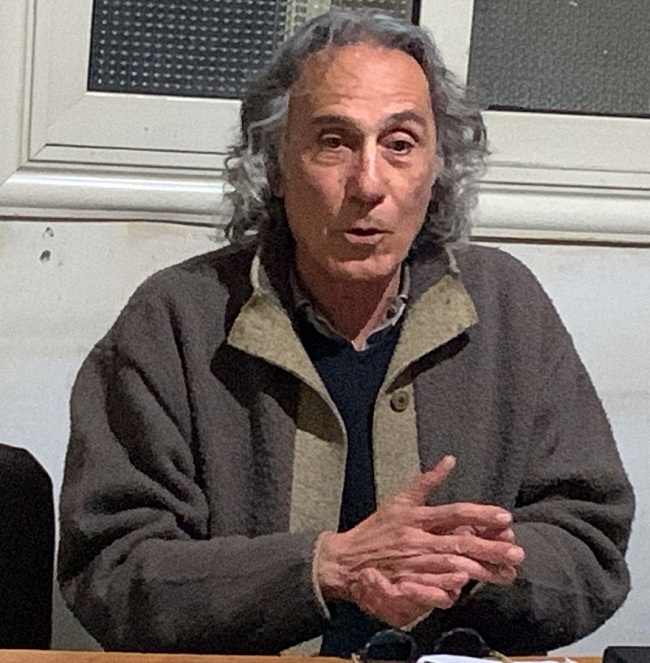
?Why the West
Who among us is not fascinated by the West? Or perhaps torn between admiration and disdain? This is how Al-Abdali began his talk during the seminar, explaining his journey to the West 40 years ago, specifically to Copenhagen, where he fled from the Saddam Hussein era in the 1970s. There, he chose to complete his studies in physics—a field that did not distance him from his love for the Arabic language, poetry, and writing in general. Copenhagen did not make him forget his roots, nor did its passport give him a sense of belonging to a homeland.
Al-Abdali does not deny his initial fascination with Copenhagen's atmosphere, particularly its impressive order, commitment to cleanliness, and the fact that its police officers do not carry weapons. A spirit of humanity prevails in most laws there, alongside the modesty of its people, who have shed tribalism, prejudice, and even formal titles.
Al-Abdali admits that finding the necessary balance was his salvation from being overwhelmed by the allure of the "white man's" civilization. This balance came from his commitment to the cause of liberating Iraq from tyranny—a regime that displaced his family and affected over two million citizens through displacement, murder, and imprisonment. The West's support for such oppressive regimes became his counterbalance, preventing him from feeling inferior or succumbing to racism.
While Al-Abdali spoke of the West's humility and humanity, he also revealed the limits of these lofty morals, which do not extend beyond their borders. The West does not hesitate to support whatever serves its interests, whether noble or ignoble, as morality and humanity often take a backseat to self-interest.
Unlike his steadfastness in advocating for freedom from tyranny, Al-Abdali, as a new immigrant, had to work tirelessly to prove himself as a valuable citizen in his new society—more so than the average white citizen, whose superiority is often assumed due to their skin color and cultural background, as propagated by early colonizers. He pursued research and academia, eventually earning a doctorate and becoming a renowned university professor who traveled across five continents, enriching his journey with diverse experiences.
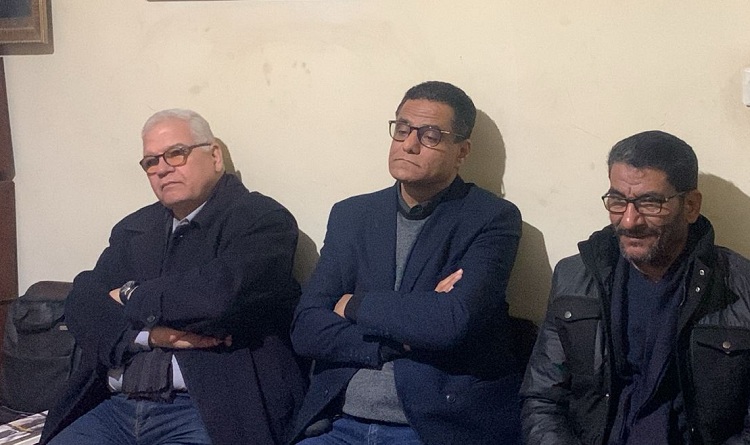
The Question of Identity
During the discussion, the audience debated the issue of identity in the face of the Western cultural flood—a question raised by Dr. Abdulkarim Al-Hajrawi, who noted that this question has persisted for two centuries. In the Egyptian context, for example, the debate revolves around whether the national identity is Arab-Islamic, Pharaonic, or even African.
Al-Abdali argued that only peoples themselves can define their identity, whether it aligns with their past or breaks from it. He cited the United States as an example: before World War I, it looked to Europe as a model, but later chose isolation and crafted its own identity.
Al-Abdali believes that differences among people are natural and inevitable, even within the same nation, where ethnic, cultural, and other disparities exist. However, what truly defines identity is a shared human constitution that unites a nation's people. Humanity, he argues, is the key to overcoming the challenges posed by human differences.
Regarding human identity, Al-Abdali returned to the West, which he sees as characterized by racism, stereotyping, and distrust of the "other," despite the humanitarian constitutions established after World War II.
He recalled his doctoral supervisor in Copenhagen, who bluntly told him, "Do you think you can ever equal a Danish student, no matter how hard you try?" This statement left him angry and led him to pause his studies for six years before returning to earn his doctorate and achieve academic success, with over fifty international research papers in physics to his name.
In contrast, Al-Abdali compared the East and the West, particularly China, where he taught for several years. He expressed admiration for Chinese culture, which he finds devoid of Western arrogance and hypocrisy. He noted the Chinese people's reserved nature, their respect for others despite contradictions, and their reverence for all aspects of life—be it nature, water, or fellow humans. This, he argued, makes them less aggressive compared to the Western model.
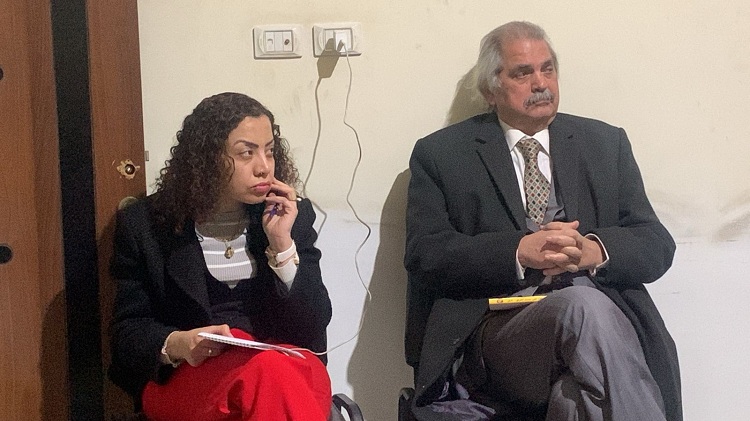
Gaza: The Event That Exposed Hypocrisy
The war on Gaza was also a topic of discussion. Magdy Shandi, editor-in-chief of *Al-Mashhad*, highlighted the recent events in Gaza, particularly the genocide against Palestinians, which exposed the West's blatant double standards.
While Western countries rushed to support Ukraine following the Russian invasion, framing it as a defense of democracy and human rights, their response to Israel's aggression in Gaza has been marked by suspicious silence or even direct support. This contradiction has prompted many to reconsider their faith in Western values and the authenticity of their humanitarian principles.
Al-Abdali argued that this contradiction reveals that the principles these nations claim to uphold—such as human rights and international justice—are merely tools used to serve their geopolitical interests. Human life, it seems, is not equal in the eyes of the West; its value depends on one's identity and nationality.
He further noted that Israel's aggression in Gaza has unmasked the true face of Western society, which champions human rights only when it aligns with its political agenda. While Russia faced severe economic and political sanctions for its war on Ukraine, Israel, despite its blatant human rights violations and destruction of Gaza, continues to receive political and military support from the same Western nations. This double standard underscores that the humanitarian principles these countries claim to uphold are little more than slogans, evaporating when their strategic interests or political alliances are at stake.
Al-Abdali emphasized that the disparity in how Ukraine and Gaza are treated highlights undeniable double standards. While Ukraine is portrayed as a symbol of resistance and sovereignty, Gaza is depicted as a complex conflict zone, with little focus on the suffering of Palestinian civilians. Western media, instead of being a voice for truth, has become a tool to justify Israeli aggression, reflecting a clear bias. This contradiction is not only moral but also political, revealing that the values Western nations claim to uphold are merely instruments to justify their hegemony and protect their interests, rather than universal principles.
Al-Abdali also pointed out that the "Al-Aqsa Flood" operation has reshaped the Palestinian cause. Before October 7, the Palestinian people were largely absent from the global conversation, which centered on Israel as the sole party to the conflict. However, the war has shifted the discourse, making the two-state solution the only viable option for European politicians, even in countries like Germany, which strongly supported Israel during the conflict. Retaining political office now requires acknowledging the rights of the Palestinian people—a shift that would not have occurred without the "flood."
Paradoxically, Western publics, who are beginning to question their governments' claims of humanitarianism, are also questioning the absence of a clear Arab political stance on the war in Gaza. They are also curious about the future plans of Arab nations, especially in light of recent developments related to Trump's proposals.
Al-Abdali noted the vast cultural differences between Europe and the United States, even at the popular level. These differences have left European societies in a state of turmoil, making it difficult to predict their future trajectory. This unrest reflects deep contradictions within Western societies and highlights the divergent visions and attitudes on either side of the Atlantic.
Dr. Ashraf Radi proposed opening a broader discussion on the topic of "We and the West" to help political and cultural elites better understand the dynamics shaping the Arab mind. He invited prominent Egyptian and Arab writers to contribute to this dialogue in *Al-Mashhad*, with the aim of compiling their insights into a book.
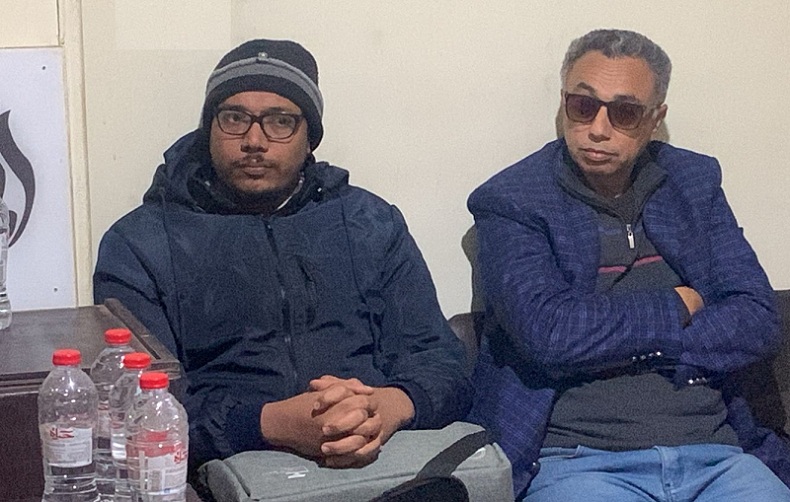
A Final Note on Al-Abdali
It is worth mentioning that the Iraqi poet and scholar Salim Al-Abdali has published three poetry collections: *"The Places Are the Tombs of Time,"* *"From the Scent of Farewell,"* and *"The Whisper of the Mirror... Secrets of the Body,"* all published by Dar Ibn Rushd in Cairo. These collections delve into existential themes, blending philosophy with poetic expression. Al-Abdali himself explains that even his scientific specialization in physics is rooted in the philosophy of nature—a term historically used to describe the study of physics or natural sciences.
Due to his work, Al-Abdali has lived in numerous countries, immersing himself in various civilizations and cultures. In one of his interviews, he reflects:
"I have lived in many countries, some for long periods and others briefly. I have lived in Europe, across several U.S. states, in the Middle East, the Far East, and even in distant Australia. One thing I must share is that since leaving Baghdad, I have never been a tourist. The cities I wrote about are places I truly lived in—I mingled with their people, worked there, and, most importantly, studied their history, culture, and the lives of their inhabitants. Each city left a mark on me, which I carried to the next. My understanding of these cities spans different periods of my life, and each time I return, I gain new insights—not only about the city itself but also about others. These places have profoundly influenced my consciousness, leaving an indelible imprint on my writing."
Report: Asma Zidane
